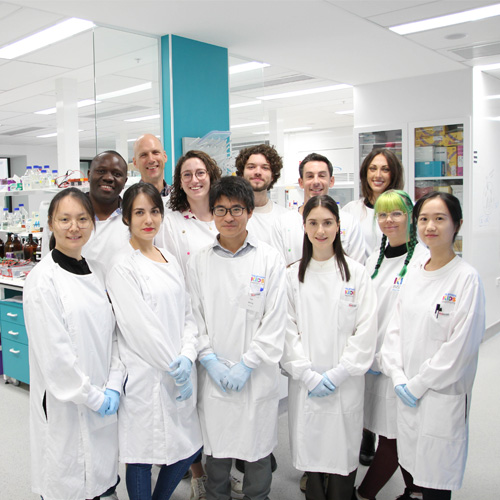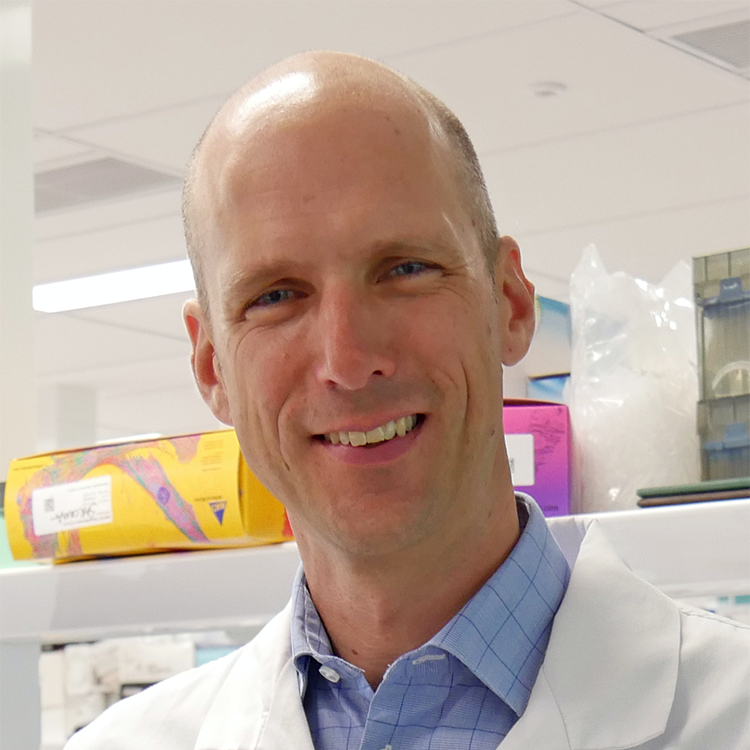Search

We think all kids with Sarcoma should be able to lead happy, healthy lives! To achieve this, we aim to discover and develop safer and more effective treatments by doing inventive and rigorous research. We focus on addressing high relapse rates using a combination of unique pre-clinical models, patient samples and systems immunology.

Research
Cancer CentreListed are all The Kids Research Institute Australia research teams involved in our Cancer Centre. This Centre sits under the Chronic and Severe Diseases research theme.
Research
Tumor Infiltrating Effector Memory Antigen-Specific CD8(+) T Cells Predict Response to Immune Checkpoint TherapyImmune checkpoint therapy (ICT) results in durable responses in individuals with some cancers, but not all patients respond to treatment. ICT improves CD8+ cytotoxic T lymphocyte (CTL) function, but changes in tumor antigen-specific CTLs post-ICT that correlate with successful responses have not been well characterized. Here, we studied murine tumor models with dichotomous responses to ICT.
Research
Potassium Ion Channels in Malignant Central Nervous System CancersMalignant central nervous system (CNS) cancers are among the most difficult to treat, with low rates of survival and a high likelihood of recurrence. This is primarily due to their location within the CNS, hindering adequate drug delivery and tumour access via surgery. Furthermore, CNS cancer cells are highly plastic, an adaptive property that enables them to bypass targeted treatment strategies and develop drug resistance.
Research
PPARalpha and PPARgamma activation is associated with pleural mesothelioma invasion but therapeutic inhibition is ineffectiveMesothelioma is a cancer that typically originates in the pleura of the lungs. It rapidly invades the surrounding tissues, causing pain and shortness of breath. We compared cell lines injected either subcutaneously or intrapleurally and found that only the latter resulted in invasive and rapid growth.

People
Associate Professor W. Joost LesterhuisProgram Head, Cancer; Chronic and Severe Diseases RFA Deputy Head
Research
The Australian New Zealand Consortium in Children, Adolescents, and Young Adults Oncofertility action planInternational and national oncofertility networks, including the US-led Oncofertility Consortium, FertiProtekt, and the Danish Network, have played pivotal roles in advancing the discipline of oncofertility over the last decade. Many other countries lack a shared approach to pediatric oncofertility health service delivery.
Research
Financial toxicity of informal caregivers of colorectal cancer patients: A cross-sectional studyTo assess the level of financial toxicity of informal caregivers of colorectal cancer patients and explore the related key influencing factors.
Research
Geldanamycin treatment does not result in anti-cancer activity in a preclinical model of orthotopic mesotheliomaMesothelioma is characterised by its aggressive invasive behaviour, affecting the surrounding tissues of the pleura or peritoneum. We compared an invasive pleural model with a non-invasive subcutaneous model of mesothelioma and performed transcriptomic analyses on the tumour samples.
Research
CD4+ T cells drive an inflammatory, TNF-α/IFN-rich tumor microenvironment responsive to chemotherapyWhile chemotherapy remains the first-line treatment for many cancers, it is still unclear what distinguishes responders from non-responders. Here, we characterize the chemotherapy-responsive tumor microenvironment in mice, using RNA sequencing on tumors before and after cyclophosphamide, and compare the gene expression profiles of responders with progressors.
